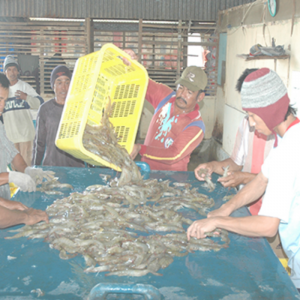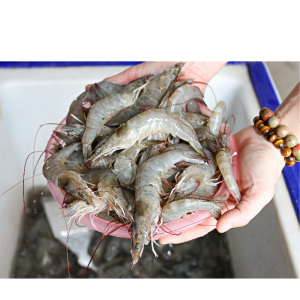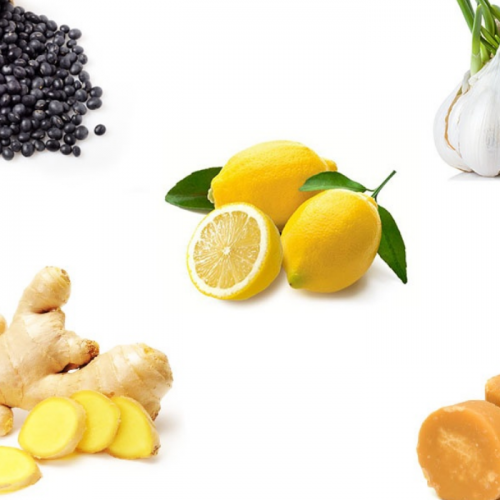
Supporting The Treatment of White Feces Disease in Shrimps with Homegrown Plants
| Thu, 24 Oct 2019 - 13:47
White feces syndrome (WFS) is a common disease in brackish shrimp culture. Pathogens that attack the pancreas lead to problems with digestion and food absorption, so improving the health status of the hepatopancreas is the key to managing white fecal disease. Based on research and fieldwork, a team from India introduced five herbs that can prevent and treat white feces in shrimp: lemon, garlic, ginger, jaggery, tofu ten. All of the above herbs have the ability to protect the liver, promote growth, prevent oxidation and interfere with the metabolism of bacteria and parasites in shrimp ponds.
Lime (Citrus limon)

Lime ( Citrus limon )
Citrus limon contains vitamin C and potassium, lemon juice is resistant to bacteria, prevent oxidation and infection.
Combining lemon juice with food can promote the digestion and absorption of nutrients from shrimp and shrimp. The chemical compounds in the composition of lemon prevent the breakdown of toxins in the intestine of shrimp to prevent absorption of toxins and transport to the hepatopancreas. The acetic acid in lemons can destroy pathogen cell membranes, causing cell damage thereby inhibiting the growth of pathogens. In addition, the flavonoids and tannins in lemons inhibit the growth of Enterocytozoon hepatopanaei (EHP).
Method of use: 50 ml of lemon juice mixed with 1 kg of feed. Let dry for 30 minutes in low light before feeding.
Garlic ( Allium sativum )

Garlic is not only rich in vitamins B1, B2, B3, B6, folate, vitamin C, calcium, iron, magnesium, manganese, phosphor, potassium, sodium, zinc ... but also against many viruses, bacteria, fungi and parasites. Thanks to active ingredients like alliin, ahoin, allicin and allistain. Old garlic extract also has antibacterial and liver protective effects in shrimp.
Method of use: 20g of crushed garlic is mixed with 50 ml of food binder, then mixed with 1 kg of feed. Let dry for 30 minutes in low light before feeding.
Ginger ( Zingiber officinale )

Ginger (Zingiber officinale)
Ginger is a familiar herb frequently used to aid digestion, reduce nausea, prevent the flu and the common cold. Ginger has been shown to be effective in controlling bacterial, viral, fungal and parasitic diseases in aquaculture thanks to its antibacterial, anti-oxidant, growth-promoting and immune-stimulating effects. with pets.
The phenolic compounds in ginger help reduce gastrointestinal (GI) stimulation caused by WFS, stimulate bile production, inhibit stomach contractions when food and fluids move through the intestinal tract in shrimp. At the same time, ginger also affects the digestive enzymes of shrimp and increases the activity of the digestive system. This suggests that ginger can help prevent and control the impact of WFS in the shrimp digestive system.
Method of use: 20g of crushed ginger is mixed with 50 ml of food binder, then mixed with 1 kg of feed. Let dry for 30 minutes in low light before feeding.
Sugar from Jaggery ( Borassus flabellifer )
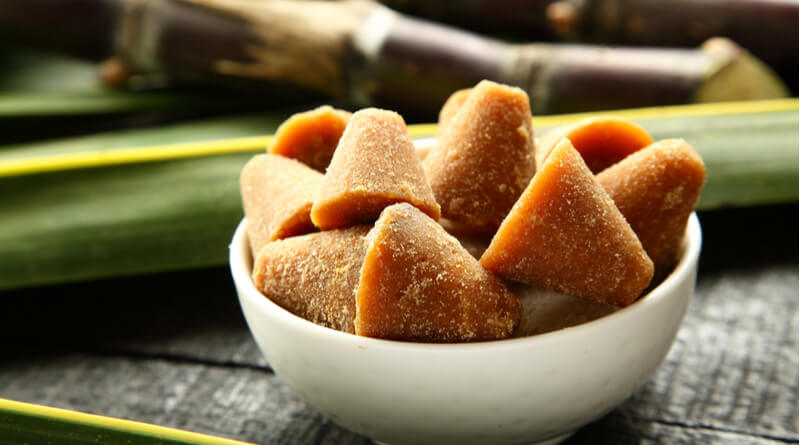
Jaggery
Jaggery is made from the water harvested by jaggery pickers using a knife to cut the tops of the jaggery. The traditional process of making jaggery will not be affected by chemical agents, thus can retain all natural mineral salts. Nutrition components of palm sugar include fat protein, carbohydrates, vitamin C, minerals (phosphor, iron, nicotinic acid, vitamin B1, riboflavin ...). Jaggery activates digestive enzymes and gastric functions, thereby speeding up the digestion, smoothing the process, and ultimately reducing stress on the digestive system.
Jaggery also works to clean the hepatopancreas by removing harmful toxins from the shrimp body. In addition, jaggery also contains antioxidants and minerals like zinc and selenium, which help prevent free radicals, enhance resistance to shrimp against WFS infection.
Method of use: Mix 1 kg of jaggery powder into 1 liter of water, bring to a boil until dissolved. Leave to cool, use 30 ml of the mixture of jaggery and 1 kg of feed. Let dry for 15 minutes in low light before feeding.
Tofu ( Vigna mungo )
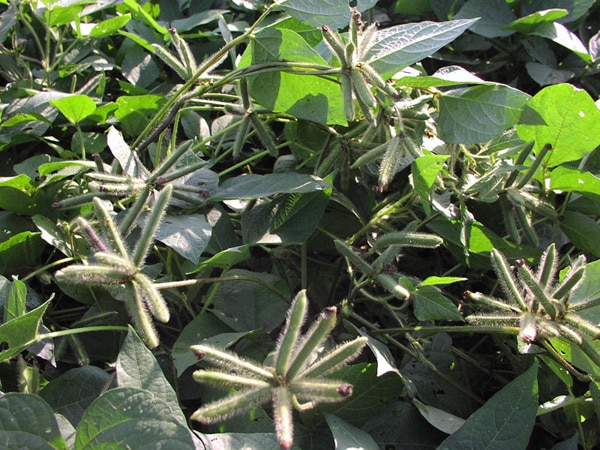
Tofu ( Vigna mungo )
Tofu or four-season mung beans, edible bean sprouts ( Vigna mungo ) are plants of the Beans family grown in South Asia. In Vietnam, ten beans grow on upland areas like Lao Cai and are also grown in many places.
Like other legumes, ten beans are rich in fiber that can help improve digestion. The compounds in tofu include flavonoids, alkaloids, glycosides, phenolics, saponins, tannins and vitexin that help with antioxidants, support liver and neurodegenerative problems.
With abundant biological activity, amino acids and other minerals, tofu has a stimulating effect on growth, acts as an antioxidant, protects the liver and controls WFS in farmed shrimp.
Method of use: Grind 50 g of ten beans with 30 ml of food binder, then mix with 1 kg of feed. Let dry for 30 minutes before feeding.
Source : tepbac















